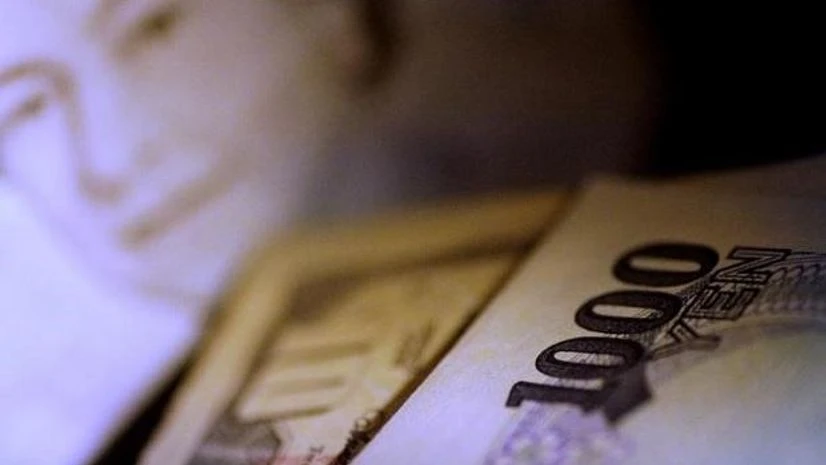By Caroline Valetkevitch and Alun John
NEW YORK/LONDON (Reuters) - The yen was up more than 1% against the dollar on Wednesday after the Bank of Japan conducted a rate check in possible preparation for currency intervention, with the Japanese currency strengthening more in the wake of U.S. producer prices data.
In a rate check, central bank officials call up dealers and ask for the price of buying or selling yen. However, actually intervening to support the currency would be a larger step.
Japanese Finance Minister Shunichi Suzuki told reporters on Wednesday that recent yen moves have been "rapid and one-sided", adding that yen-buying currency intervention was among the government's options should such moves continue.
"Most market participants are on pins and needles awaiting whether or not we're going to get any sort of intervention from the ministry of finance in Japan," said Bipan Rai, North American head of FX strategy at CIBC Capital Markets in Toronto.
"It's one of those things where we've seen comments so many times about the fact that they're watching and monitoring the yen. The fact that they did a rate check overnight kind of indicates we're in greater proximity toward intervention. But just intervention by itself we don't think is going to be all that successful outside of an immediate knee-jerk reaction."
The recent sharp gains in the dollar versus the yen have been tied to the hawkish stance from the Federal Reserve in raising interest rates to control inflation. The dollar hit a 24-year peak against the yen last week.
More From This Section
The dollar fell 1% against the yen right after news of the rate check. Nikkei website reported the rate check, citing unidentified sources, and Reuters later confirmed it with a market source. The dollar was last down 1.4% at 142.67 yen, hitting a session low of 142.6 in the wake of the PPI data.
The dollar index, which tracks the currency against six main peers, was down 0.3% on Wednesday at 109.55, a day after registering its largest daily percentage gain since March 2020 on an unexpected rise in the U.S. consumer price index (CPI).
On Wednesday, data showed producer prices fell for second straight month in August, while it also showed underlying producer inflation rising moderately last month.
Financial markets now have fully priced in an interest rate hike of at least 75 basis points at the conclusion of the Fed's policy meeting next week, according to the CME's Fedwatch tool.
As inflation is a small concern in Japan, authorities are keeping yields on Japanese government bonds pinned down to help with the economic recovery. [JP/T]
In contrast, the two-year U.S. Treasury yield, a bellwether for interest rate expectations, rose another 3.2 basis points to 3.788% after jumping 18.5 bps on Tuesday following the consumer price data.
The euro was up 0.1% against the dollar at $0.9979.
========================================================
Currency bid prices at 10:42AM (1442 GMT)
Description RIC Last U.S. Close Pct Change YTD Pct High Bid Low Bid
Previous Change
Session
Dollar index
109.5500 109.8300 -0.25% 14.517% +109.9300 +109.2700
Euro/Dollar
$0.9979 $0.9968 +0.11% +0.00% +$1.0024 +$0.9956
Dollar/Yen
142.6700 144.6200 -1.35% +0.00% +144.9550 +142.5800
Euro/Yen
142.36 144.08 -1.19% +0.00% +144.4700 +142.3000
Dollar/Swiss
0.9609 0.9619 -0.10% +0.00% +0.9631 +0.9591
Sterling/Dollar
$1.1565 $1.1494 +0.61% +0.00% +$1.1578 +$1.1480
Dollar/Canadian
1.3159 1.3175 -0.11% +0.00% +1.3206 +1.3149
Aussie/Dollar
$0.6742 $0.6733 +0.14% +0.00% +$0.6748 +$0.6705
Euro/Swiss
0.9588 0.9583 +0.05% +0.00% +0.9628 +0.9582
Euro/Sterling
0.8628 0.8674 -0.53% +0.00% +0.8684 +0.8629
NZ
Dollar/Dollar $0.6012 $0.6000 +0.08% +0.00% +$0.6013 +$0.5978
Dollar/Norway
10.1000 10.1125 +0.10% +0.00% +10.1460 +10.0710
Euro/Norway
10.0806 10.0641 +0.16% +0.00% +10.1251 +10.0577
Dollar/Sweden
10.6880 10.6882 +0.09% +0.00% +10.7160 +10.6211
Euro/Sweden
10.6662 10.6570 +0.09% +0.00% +10.6779 +10.6369
(Reporting by Caroline Valetkevitch in New York and Alun John in London and Kevin Buckland; Editing by Kim Coghill, Edmund Klamann, Toby Chopra, Mark Heinrich and Jonathan Oatis)
(Only the headline and picture of this report may have been reworked by the Business Standard staff; the rest of the content is auto-generated from a syndicated feed.)

)
